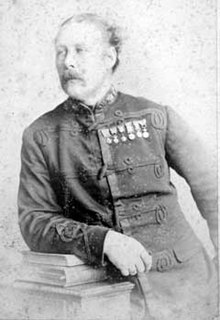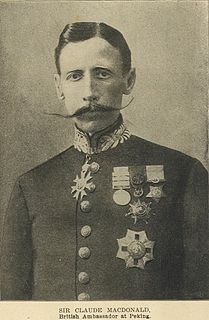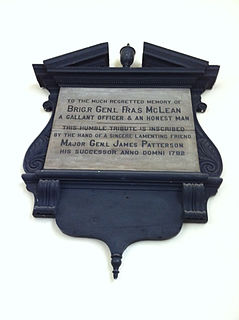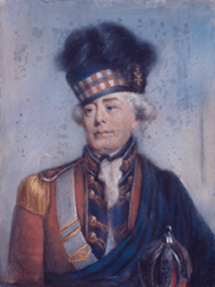 W
WLieutenant Colonel James Abercrombie was a British army officer who died during the American Revolutionary War.
 W
WAlexander Lindsay, 6th Earl of Balcarres and de jure 23rd Earl of Crawford was the son of James Lindsay, 5th Earl of Balcarres. He was a general in the British Army.
 W
WGeneral Sir Duncan Alexander Cameron, was a British Army officer who fought in the Crimean War and part of the New Zealand Wars. He was later a governor of the Royal Military College, Sandhurst.
 W
WGeneral Sir William Gordon Cameron was a British soldier and colonial administrator.
 W
WColonel Alexander Campbell of Possil (1754–1849) entered the army as an ensign in the 42nd Regiment in April 1769, and obtained a lieutenancy in the 2nd Battalion Royals the following year in Menorca. He moved to the 62nd regiment later that year in Ireland and went with the regiment to Canada, where, as a captain of light infantry under General Carleton, he fought in the campaigns of 1776 and 1777 with General Burgoyne in the American War of Independence.
 W
WLieutenant-General John Lindsay, 20th Earl of Crawford was a Scottish peer and the first colonel of the Black Watch on its formation in 1739.
 W
WSir Robert Henry Dick KOV was a Scottish soldier, son of a doctor in the East India Company's service.
 W
WColonel Henry Maurice Drummond-Hay was a Scottish naturalist and ornithologist.
 W
WMajor Francis Edward Henry Farquharson VC was a Scottish recipient of the Victoria Cross, the highest and most prestigious award for gallantry in the face of the enemy that can be awarded to British and Commonwealth forces.
 W
WColonel George Armand Furse was a British Army officer and author.
 W
WGeneral John Hope, 4th Earl of Hopetoun PC KB FRSE, known as the Honourable John Hope from 1781 to 1814 and as the Lord Niddry from 1814 to 1816, was a Scottish politician and British Army officer.
 W
WColonel Sir Claude Maxwell MacDonald, was a British soldier and diplomat, best known for his service in China and Japan.
 W
WLieutenant General Sir William Alexander Mackinnon was Director-General of the British Army Medical Service (1889–1896).
 W
WGeneral Sir John Grenfell Maxwell, was a British Army officer and colonial governor. He served in the Mahdist War in the Sudan, the Second Boer War, and in the First World War, but he is best known for ordering the execution of the leaders of the 1916 Easter Rising in Ireland. He retired in 1922.
 W
WBrigadier General Francis McLean was a British army officer, one of two sons of Captain William Maclean and Anne Kinloch. He became famous for defending New Ireland (Maine) against the Penobscot Expedition during the American Revolution. The defeat of the Expedition was a noted British victory of the American Revolution. He was in command of the 74th Regiment of (Highland) Foot and 82nd Regiment of Foot (1778). He died 4 May 1781 at Halifax, Nova Scotia and is buried in the crypt of St. Paul's Church (Halifax). McLean never married.
 W
WSir Robert Munro of Foulis, 6th Baronet was a soldier-politician whose life followed an 18th-century pattern. He fought in support of the Revolution Settlement and the House of Hanover, and their opposition to all attempts by the Jacobites to restore the House of Stuart either by force of arms or by political intrigue.
 W
WJohn Reid, previously known as John Robertson, was a British army general and founder of the chair of music at the University of Edinburgh.
 W
WJohn Small was a career British military officer from Scotland who played a key role in raising and leading the 84th Regiment of Foot during the American Revolution. After the war, he settled with many of the men of the 84th Regiment in Douglas Township, Hants County, Nova Scotia. The British Crown granted land to soldiers after the war to encourage settlement, especially in Upper Canada.